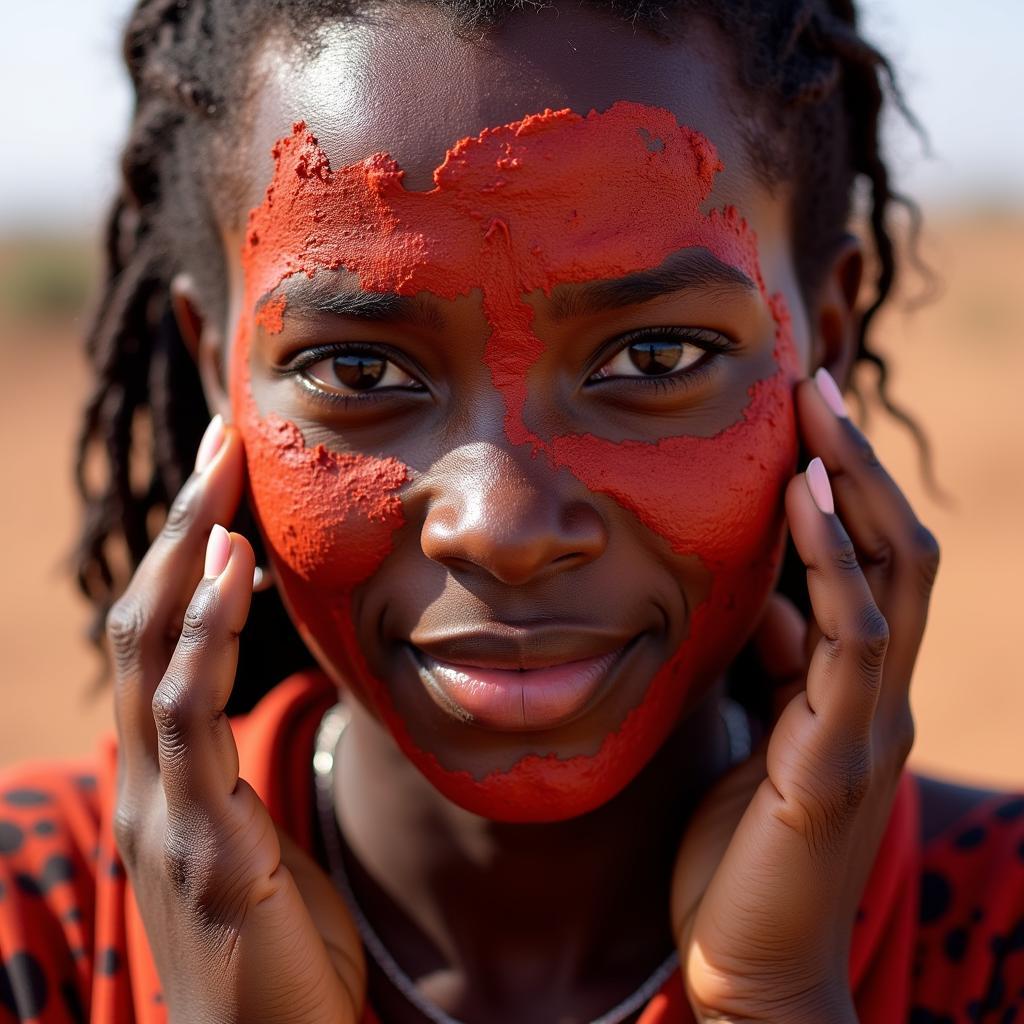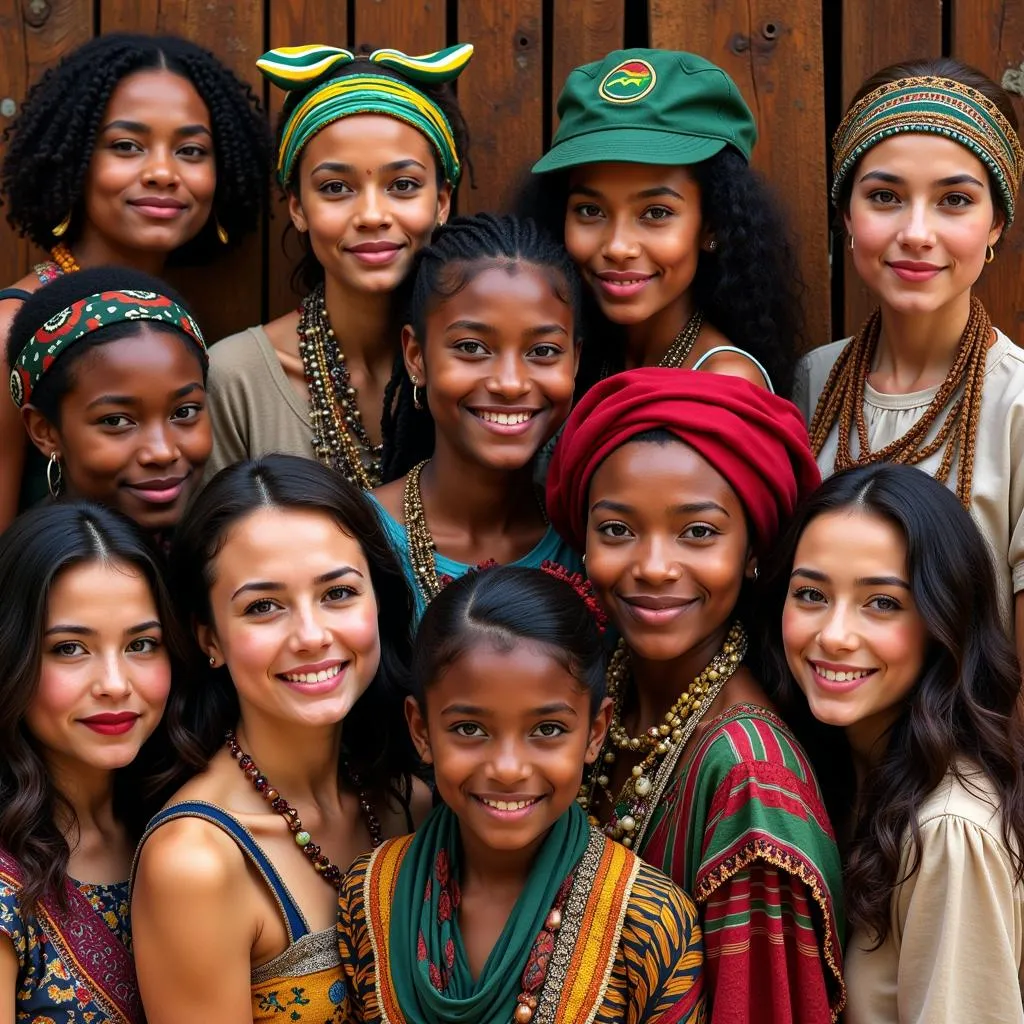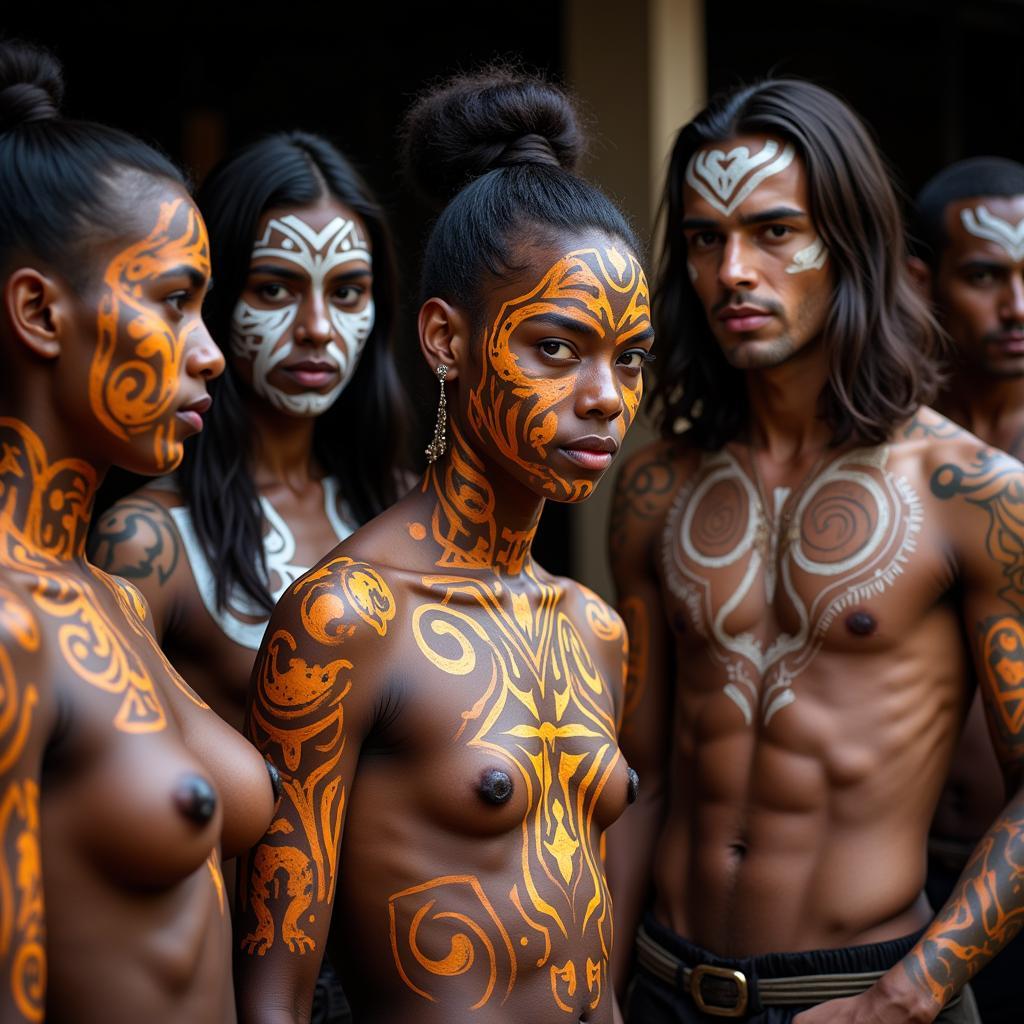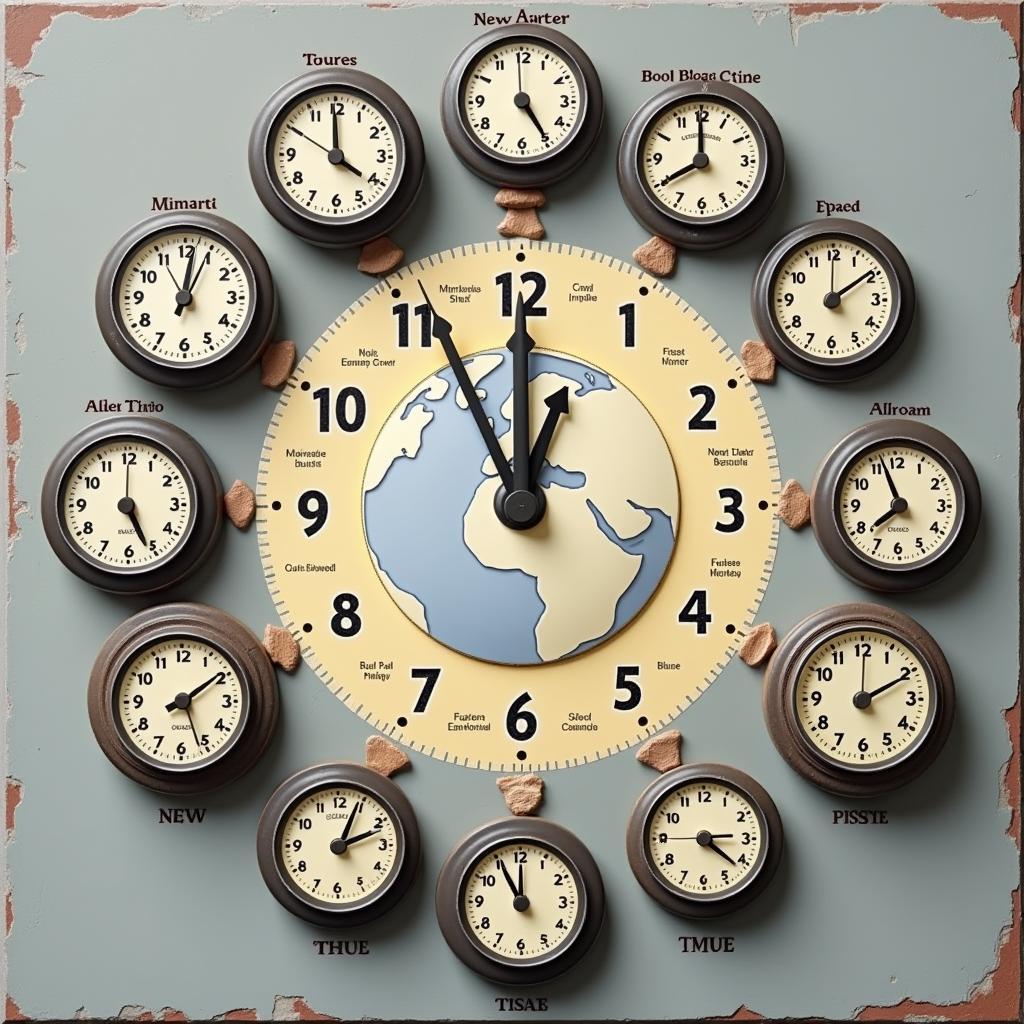African Knives and Swords: More Than Just Blades
African Knives And Swords are much more than simple tools for cutting. They represent a rich tapestry of cultural heritage, artistic craftsmanship, and historical significance that spans the vast African continent. From the curved blades of the Maasai warriors to the ornate daggers of the Tuareg people, these weapons offer a glimpse into the diverse traditions and beliefs of their creators.
A Legacy Forged in Steel: Exploring the History of African Knives and Swords
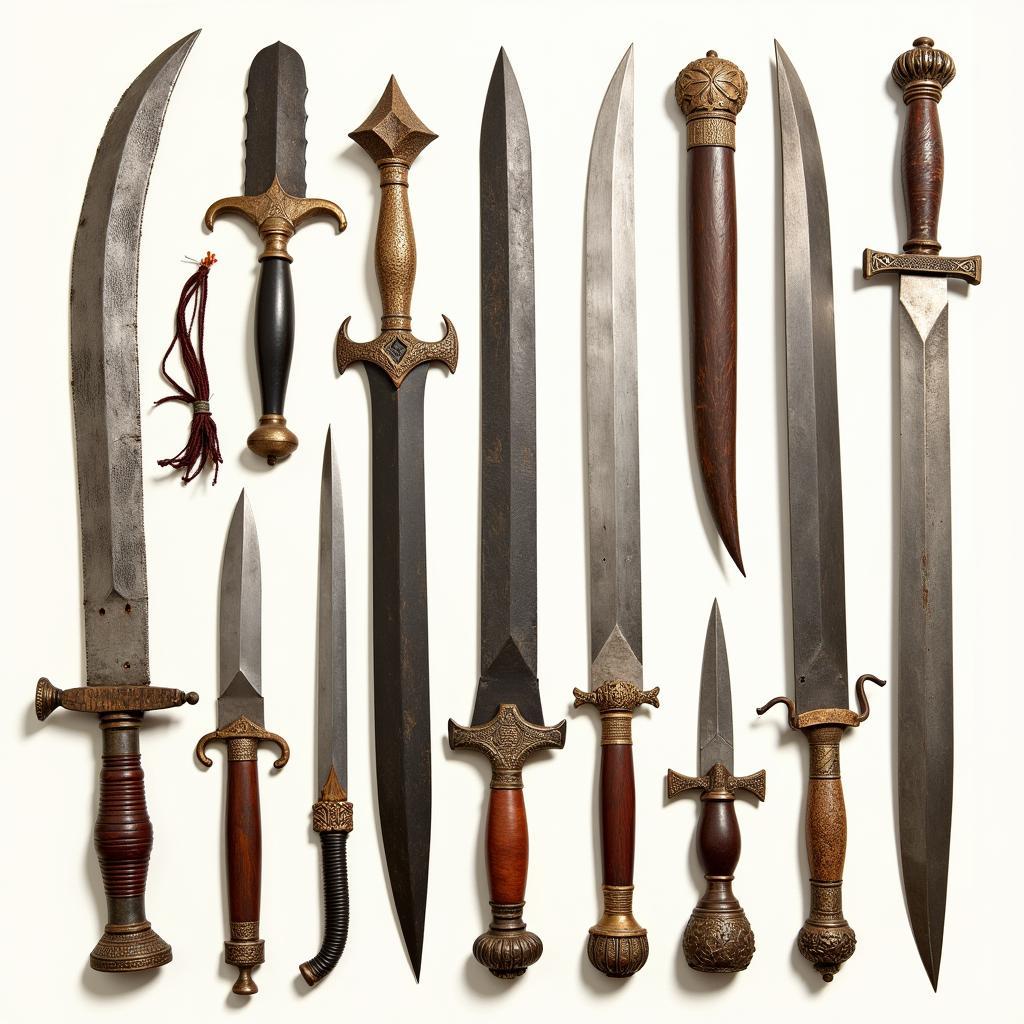 Tribal knives and swords from various African cultures
Tribal knives and swords from various African cultures
For centuries, African knives and swords have played integral roles in the lives of numerous ethnic groups. They have served not only as instruments of defense and hunting but also as symbols of status, wealth, and spiritual power. The history of these blades is intricately woven into the fabric of African societies, reflecting their customs, rituals, and even their interactions with the environment.
Diversity in Design: The Many Faces of African Blades
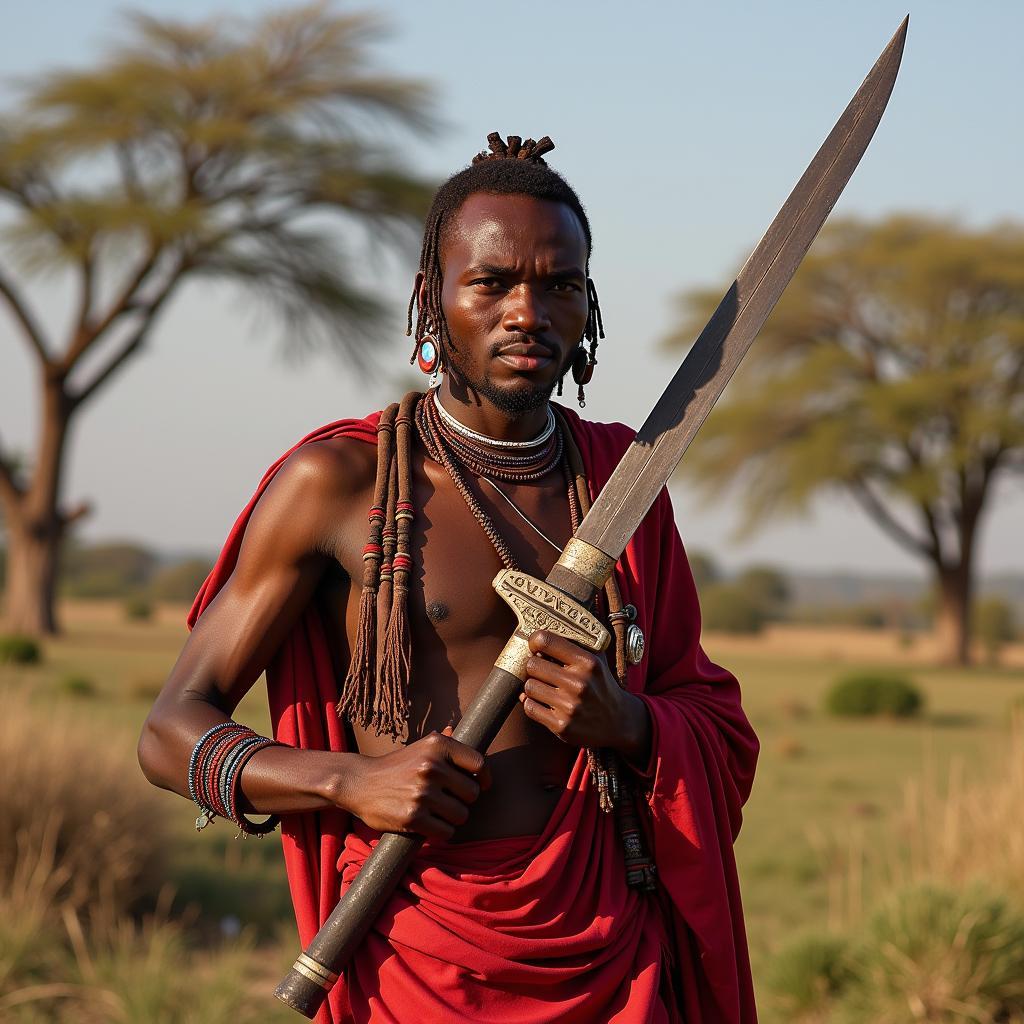 A Maasai warrior holding a simi
A Maasai warrior holding a simi
One of the most captivating aspects of African knives and swords is the sheer diversity of their designs. Each region and ethnic group boasts its own unique styles, reflecting their specific needs, materials, and aesthetic preferences.
Blades That Tell Tales: Regional Variations and Cultural Significance
In the arid landscapes of North Africa, the Tuareg people are renowned for their intricately crafted daggers, often featuring silver and geometric patterns. These blades, known as “telek,” are not just weapons but also serve as important status symbols within Tuareg society.
Further south, in the savannas of East Africa, the Maasai warriors are recognized for their long, double-edged swords called “simi.” These blades, often adorned with leather and beads, are essential tools for both defense and ceremonial purposes.
Moving west, we encounter the kpinga, a throwing knife unique to the Zande people of Central Africa. These multi-bladed weapons are marvels of aerodynamic design, demonstrating the ingenuity and craftsmanship of their creators.
Beyond the Battlefield: The Symbolic Importance of African Knives and Swords
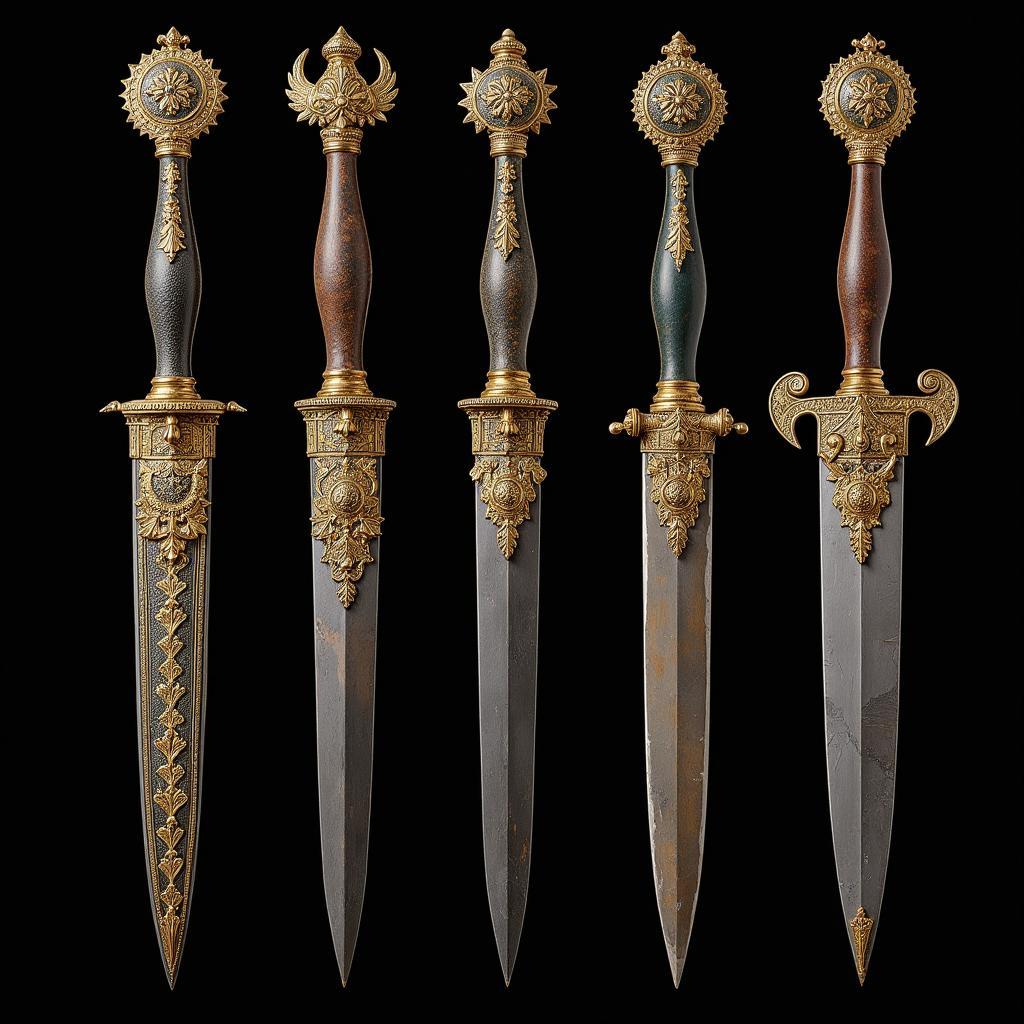 African ceremonial daggers adorned with intricate details
African ceremonial daggers adorned with intricate details
It’s crucial to remember that African knives and swords are more than just weapons; they are powerful symbols imbued with cultural and spiritual meaning.
Rituals, Rites, and Representations: The Deeper Meaning of Blades
In many African cultures, these blades play significant roles in rituals and ceremonies. They are often used in dances, initiation rites, and even marriage ceremonies, representing strength, courage, and the transition to adulthood.
Moreover, certain types of knives and swords are believed to possess spiritual power. They are used by spiritual leaders and healers in various rituals, connecting the physical and spiritual realms.
African Knives and Swords Today: Preserving Heritage in a Changing World
While the traditional roles of African knives and swords have evolved in modern times, their cultural and artistic significance remains strong. Today, these blades are increasingly recognized as valuable artifacts and works of art, collected by museums and individuals alike.
From Functional Tools to Artistic Expressions: A Legacy Endures
Many skilled artisans across Africa continue to create these blades using traditional techniques passed down through generations. They are keeping alive ancient skills while adapting their craft to contemporary designs and uses.
Conclusion
African knives and swords offer a fascinating window into the diverse cultures, histories, and artistic traditions of the continent. These blades, forged in steel and imbued with meaning, remind us of the ingenuity, resilience, and rich heritage of the African people. As we admire their craftsmanship and learn their stories, we gain a deeper appreciation for the enduring legacy of these extraordinary weapons.
